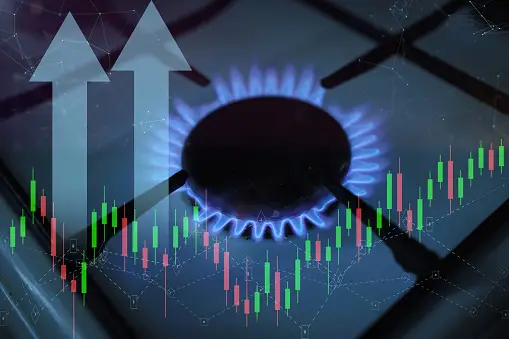In a development that has sent shockwaves through the global energy market, European gas prices have skyrocketed by 10% due to ongoing strikes at major LNG (liquefied natural gas) facilities in Australia. The strike action has disrupted the supply chain and exacerbated the already volatile energy landscape, posing challenges for both consumers and businesses alike.
The Background: Strikes Hit Down Under
The strikes, which began recently at critical LNG facilities in Australia, have thrown a wrench into the gears of the energy market. Australia is a significant player in the global LNG trade, with exports reaching various corners of the world, including Europe. These disruptions have set off a chain reaction, causing a ripple effect felt across continents.
Impact on European Gas Prices
As Australia’s LNG production slowed to a crawl due to the strikes, the shortage of supply reached Europe, a region heavily reliant on imported natural gas. The immediate consequence was a substantial surge in gas prices. European consumers and businesses are now grappling with the shock of skyrocketing energy bills, which have far-reaching consequences for industries ranging from manufacturing to transportation.
Contributing to the Global Energy Crisis
This sudden surge in gas prices only adds to the woes of the global energy crisis. A combination of factors, including supply chain disruptions, geopolitical tensions, and increased demand as economies recover from the pandemic, have pushed energy prices to unprecedented levels. The strikes in Australia have further exacerbated this precarious situation, underlining the need for a more resilient and diversified energy strategy.
The Way Forward: Mitigating the Impact
In times like these, it becomes crucial for nations and regions to assess their energy strategies and implement measures to mitigate the impact of such disruptions. This includes investing in alternative energy sources, enhancing energy efficiency, and fostering international cooperation in energy trade.
The 10% surge in European gas prices due to strikes at major LNG facilities in Australia is a stark reminder of the interconnectedness of the global energy market. As we navigate the ongoing energy crisis, it is imperative for stakeholders to work together in building a more sustainable and resilient energy future. In the short term, consumers and businesses in Europe must brace themselves for higher energy costs, while in the long term, a strategic shift towards cleaner and more diversified energy sources is essential to prevent such price shocks from becoming a regular occurrence.












